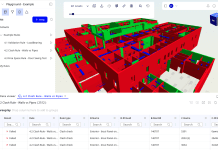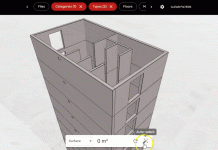Shona Frame and Chris Hallam, Partners at law firm CMS highlight the scope of the CMS BIM e-guide in summarising global legislation and guidelines
BIM has become a hot topic in the design, construction and facilities management fields in many countries around the globe. Due to the perceived potential benefits of BIM, many governments have started to promote its use. However, the extent to which BIM is adopted in different countries, as well as the legal traditions and frameworks to be considered when implementing BIM, vary around the globe.
The construction team at international law firm CMS has launched the CMS e-guide on Building Information Modelling (BIM). This CMS e-guide aims to consolidate and summarise the position on the topics covered from a number of jurisdictions.
The e-guide is in the format of 16 BIM FAQs for each of 9 countries (Austria, Brazil, Chile, France, Germany, the Netherlands, Poland, United Arab Emirates and the United Kingdom).
This allows readers to focus only on the parts relevant to a particular country or to make a direct comparison on an issue across countries to get more of a “world view”.
The FAQs are intended to cover practical issues which arise. These include issues like contractual provision for BIM, BIM protocols, insurance, design liability, ownership and use of data, provision of data, timescales for projects, use of BIM for facilities management and a look to the future.
BIM across the globe
The e-guide highlights some interesting distinctions in the take up of BIM. In the UK, the government mandate for its use is well known. Elsewhere, the approach has differed. In France, there has been a Ministry of Housing promotion and investment package. In Germany, a 3-stage action plan is in place for the introduction of BIM, driven by the public sector, specifically in relation to infrastructure. In Dubai, BIM was first introduced as a requirement for certain types of buildings in 2013 and has since been extended. In South America, the Brazilian and Chilean governments have been working with the UK in respect of information exchanges about the use of BIM.
Across the jurisdictions, there is a general lack of detailed contractual provision for BIM either in bespoke or, where these are used, standard form contracts. There is a consensus that contractual provision is required for matters such as parties’ roles and responsibilities, intellectual property rights (particularly in relation to the use of data), specification of what data is required and at what level of detail and step-down of obligations on a back to back basis in sub-contracts. Collaboration is also a common theme as is the possibility of multi-party contracts and use of the Integrated Project Delivery model.
On the insurance front, by and large, the insurance industry appears relaxed about the use of BIM. In France, however, it is noted that insurers are developing an insurance policy for IT services in the building sector. There is some evidence of the development of project insurances such as the Integrated Project Insurance form of cover although the market in this does not appear well developed.
Regarding time required for projects, there is a feeling that while BIM can reduce the on-site construction phase; it does benefit from a more extended planning/design phase in advance to gain the full benefits. The benefits of BIM to the occupation phase of a building’s life appear to be well recognised and therefore of importance to the real estate and not just construction sector.
Across the world, there is a large body of technical standards, guidance and protocols being developed. Links to a number of these are contained in the e-guide.
Looking forward, there is a general view that regardless of the state of development of BIM to date, its use is only likely to grow and develop further.
The full guide can be accessed at www.cms-legal.net/enews/2017/06_E-Guide
. . . . . . . . . . . . . . . . . . . . . . . . . . . . . . . . . . . . . . . . . . . . . . .
Shona Frame
Partner
Chris Hallam
Partner
Infrastructure Construction and Energy team
CMS Cameron McKenna
Tel: +44 (0)20 7367 3000
Shona.Frame@cms-cmck.com and chris.hallam@cms-cmno.com
www.cms-cmck.com
Twitter @CMS_law














